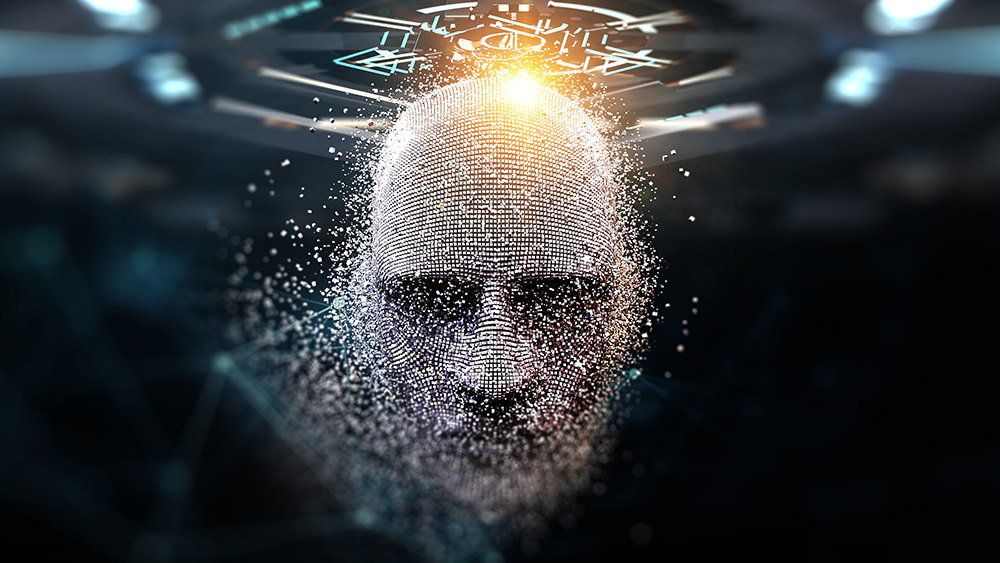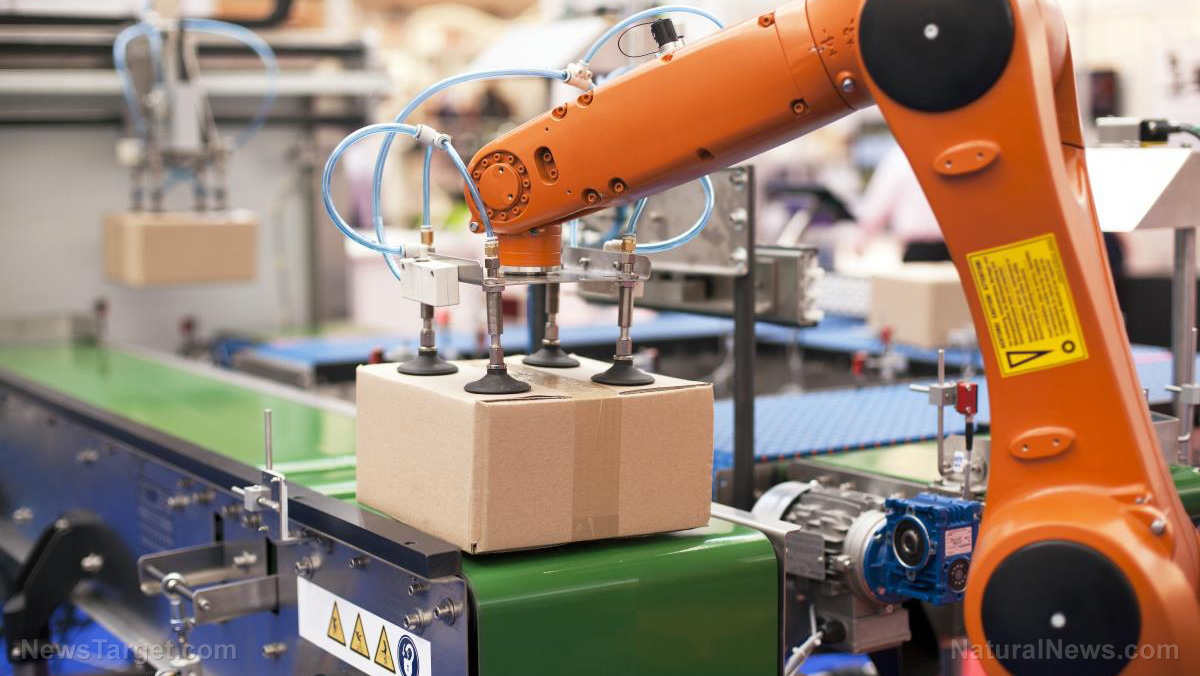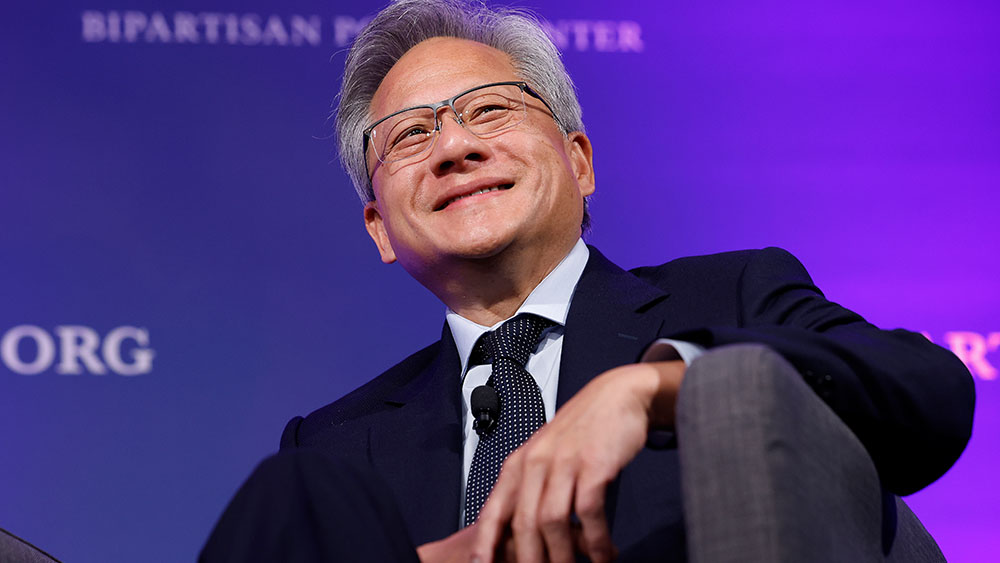AI video generation tools: A new frontier in deepfakes and misinformation?
11/13/2025 / By Kevin Hughes

- Tools like Grok Imagine, Deepfake App and FaceForensics use machine learning to create hyper-realistic fake videos. Applications range from entertainment to malicious uses (e.g., political disinformation, non-consensual imagery).
- Deepfakes can manipulate public opinion, fabricate statements from leaders and undermine democracy. Lack of regulation enables abuse, risking reputational harm, election interference and even physical danger.
- Governments must enforce strict AI regulations to prevent misuse. Tech companies should implement detection tools (e.g., SynthID watermarks) and public awareness campaigns.
- Red flags to spot in AI-generated videos include visible/removed watermarks; unnatural audio sync or robotic voices; distorted/missing text; suspiciously short clips (10–25 seconds); and too-perfect visuals or low-resolution “leaks.” Users are advised to utilize reverse-image search (Google Lens) and AI detection tools (CloudSEK).
- AI deepfakes will grow harder to detect, threatening elections, law enforcement and truth itself. Critical thinking and verification (trusted sources, skepticism of viral clips) are essential defenses.
In a disturbing display of technological prowess, X owner Elon Musk has showcased his AI video generation tool, Grok Imagine. The tool, demonstrated in a video clip, creates the unsettling illusion of a woman’s face declaring “I will always love you,” raising alarming ethical questions about the future of AI and its potential misuse.
AI video generation tools like Grok Imagine are gaining traction, with companies like Deepfake App and FaceForensics offering similar services. These tools use advanced machine learning algorithms to manipulate video footage, creating convincing yet fake content. While the technology has potential applications in filmmaking and entertainment, its darker side has already been exploited for malicious purposes, such as creating non-consensual intimate images or spreading disinformation.
BrightU.AI‘s Enoch defines an AI video generation tool as a software application that leverages artificial intelligence, particularly machine learning and deep learning algorithms, to create or manipulate video content. These tools can generate new videos, edit existing ones or enhance them with various effects.
The decentralized engine adds that AI video generation tools offer a range of creative and practical applications. They can automate tasks, enhance content and even generate entirely new videos. As with any powerful technology, it’s essential to use them responsibly and ethically.
The need for regulation and public awareness
The ability to generate convincing fake videos poses significant ethical challenges. The technology could be used to create deepfakes of political figures saying or doing things they never did, swaying public opinion and undermining democracy. Moreover, the lack of regulation and oversight in this field leaves the door open to abuse, with potential consequences ranging from reputational damage to physical harm.
As AI video generation tools become more sophisticated and accessible, it is crucial to address the ethical implications and potential misuse.
Governments must enact robust regulations to prevent abuse, while tech companies should implement safeguards to detect and prevent the misuse of their tools. Furthermore, public awareness campaigns are necessary to educate people about the existence and dangers of deepfakes.
The rapid advancement of AI also raises critical questions about the future of humanity. As tools like Grok Imagine become more powerful, it is essential to consider the ethical implications and ensure that AI is developed and used responsibly. The onus lies on society to engage in open and honest conversations about AI’s potential benefits and risks, and to demand accountability from those who wield this powerful technology.
AI deepfakes flood the internet: Here’s how to spot them
As AI-generated videos and audio become increasingly sophisticated, distinguishing fact from fiction online is more challenging than ever. With mainstream tools like OpenAI’s Sora 2 and Google’s Veo 3 producing hyper-realistic clips—complete with synced dialogue—misinformation is spreading rapidly.
Experts warn that deepfakes could play a major role in election interference, false flag operations and AI-powered swatting, making it critical for the public to recognize red flags. Here are seven key signs to watch out for:
- Watermarks and hidden digital tags: Some AI-generated videos, like those from Sora, include visible watermarks—often in the bottom-left corner. However, not all platforms use them, and tech-savvy users can remove or alter these markers. Google employs SynthID, an invisible watermark detectable by machines, but even these can be bypassed with the right tools.
- Missing or unverifiable source material: If a viral clip has no traceable origin, it’s likely AI-generated. Reverse-image searching key frames using tools like Google Lens can help confirm authenticity. For example, AI-generated animations or game footage often lack credible sources since real versions require extensive production.
- Unnatural audio and syncing errors: AI voices often have a robotic timbre, and ambient sounds may lag slightly—like footsteps landing before a foot hits the ground. Lip-syncing issues are another giveaway, especially in deepfakes of politicians or celebrities.
- Distorted or missing text: AI struggles with rendering legible text consistently. Watch for warped words on signs, books or whiteboards—or suspicious omissions where text should appear.
- Suspicious video length: Most AI tools limit clips to 10, 15 or 25 seconds. If a viral clip matches these exact durations, it’s likely machine-made.
- Low resolution or oddly high quality: In 2025, most real videos are shot in 4K, so grainy footage (like “leaked” smartphone clips) is suspect. Conversely, AI-generated videos sometimes look too perfect, with unnaturally smooth lighting and poreless skin.
- Fails AI detection tests: Tools like CloudSEK’s Deepfake Analyzer can estimate whether a video is AI-generated—though they’re not foolproof.
As AI improves, these red flags may fade, making critical thinking essential. With deepfakes poised to disrupt elections and law enforcement, staying vigilant is more important than ever.
Watch this video about the deep fakes of artificial intelligence and virtual reality.
This video is from the Live With Your Brain Turned On channel on Brighteon.com.
Sources include:
Submit a correction >>
Tagged Under:
AI video generation tools, artificial intelligence, computing, deception, Deepfake App, deepfakes, Elon Musk, FaceForensics, fake videos, faked, future tech, Glitch, Google, Grok Imagine, information technology, lies, machine learning algorithms, OpenAI, red flags, robots, Sora 2, SynthID, Veo 3, video footage, watermark
This article may contain statements that reflect the opinion of the author
RECENT NEWS & ARTICLES
COPYRIGHT © 2017 CYBER WAR NEWS




















